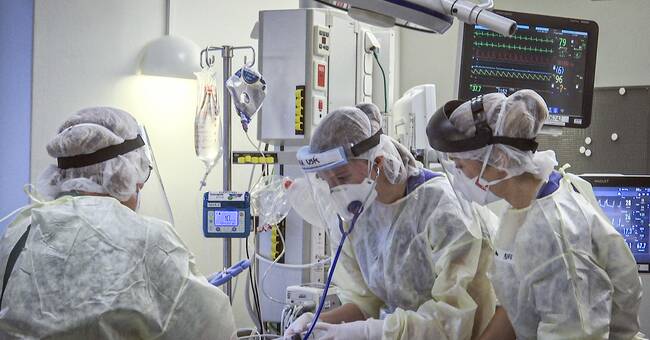The plan is for Västra Götaland and Skåne to coordinate the regions' respective care in large computer systems - owned by the American company Cerner.
The contracts together are worth almost SEK 7 billion and the consulting costs for adapting the systems to Swedish healthcare have so far cost around SEK 600 million in the two regions.
In Västra Götaland, the project has been named "Future care information environment", FVM.
But there, one of the systems - the journal system Millennium - has been met with harsh criticism.
The care staff's analyzes have led to all anesthesia and intensive care in the region now refusing to use it.
The same applies to all X-rays in the region.
- We have made a comprehensive analysis of at least the parts I work with.
There we have come to the conclusion that this system has such major shortcomings that we do not think it is useful, says Magnus Snäckestrand, chief physician at the intensive care unit at Sahlgrenska University Hospital in Gothenburg.
“High risk of medical injury
The most serious criticism put forward concerns the handling of drugs in the system.
- I see risks of incorrect drug dosing and duplicates in drug prescriptions.
I would simply like a better review and better response to the risks I have presented.
My task is to ensure that there are no new patient safety risks, says Ylva Kastrup, specialist in neurology at Sahlgrenska.
A report commissioned by Assignment Review, written by twelve of the region's own pharmaceutical experts, warns of serious patient safety risks.
They write, among other things, that the system can cause "substandard medication prescription for children" and "high risk of medical injury".
"Developing the basic system"
Ann-Sofi Lodin, regional director in Västra Götaland, tells Uppdrag review that they will not introduce a system that is not patient safe.
- We are developing the basic system now to suit the requirements we have, both from a patient and resident perspective and from an employee perspective.
But your own doctors say it does not work, the system is too old, too bad.
It is not possible to get it safely according to Swedish laws and requirements.
- This report is part of our work and it has been on the table since it was written and is currently part of the work we are going to do to handle these things.
It is completely obvious that we can not launch this unless patient safety is ensured, says Ragnar Lindblad, program owner FVM, Västra Götalandsregionen.
In Region Skåne, less strong, open criticism has been directed at the American journal system.
Fredrik Jonsson, doctor and clinically responsible for the roll-out of Skåne's digital healthcare system, has previously told SVT that he understands colleagues' concerns, but that the concerns are part of the process.
He also says that they need to adapt the system to Swedish legislation and a Swedish way of working.
See a longer report on the healthcare investment here.

